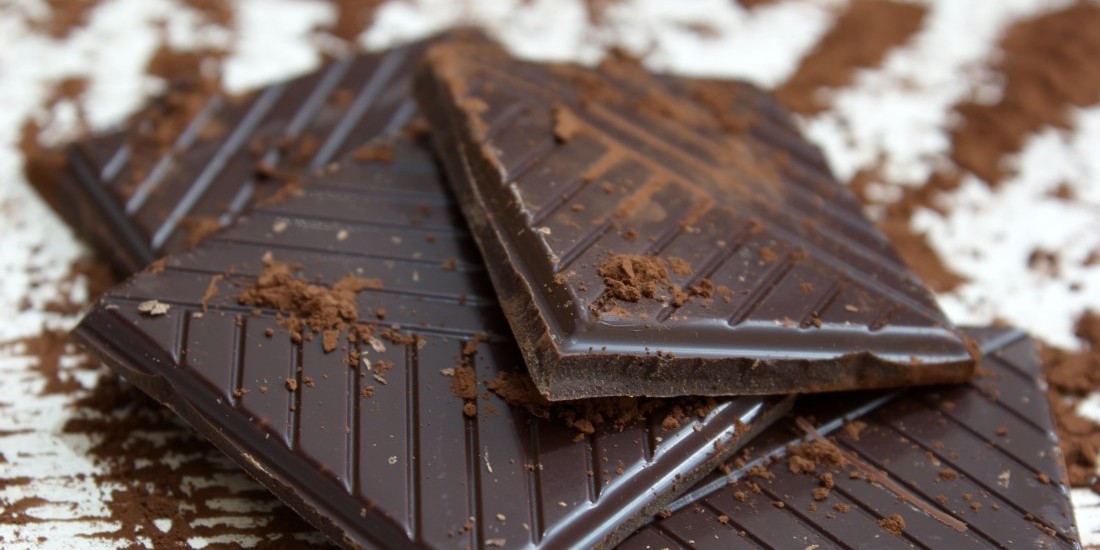Dark Chocolate A Healthy Alternative, But
Chocolate is not something that comes to mind when one thinks about healthy food. After all, most chocolate is a commercially processed sweet treat laden with chemical additives and preservatives. However, it is crucial to note though that not all chocolate is created equal, and dark chocolate is one of the healthier versions of this beloved dessert item. Dark Chocolate is at least 72% Cacao, I prefer 85%, and the best brands have the least amount of added ingredients. No doubt dark chocolate can be a healthy addition to your diet. But, there are some downsides to dark chocolate that are worth mentioning though.
Dark Chocolate Benefits
Dark chocolate is a potent source of procyanidins, a class of flavonoids. Flavonoids, in general, function as antioxidants in the body. However, the procyanidins in dark chocolate serve a far more important role than just being antioxidants. As it turns out, this class of flavonoids are capable of preventing the growth of specific breast cancer cells by down-regulating the proteins that control said process, as well as inhibiting the spread of already existing cancerous cells in the breast, according to a Georgetown University Medical Center study.1
The procyanidins along with the polyphenols in dark chocolate show potential for weight management as well, as was found in a Pennsylvania State University study.2 As it turns out, these procyanidins and polyphenols are capable of preventing the breakdown of specific digestive enzymes, subsequently resulting in lesser free fatty acids in the blood. Eating dark chocolate, along with implementing a low-calorie diet, may then prove useful in ensuring the success of one’s weight loss and weight management pursuits.
Dark chocolate contains methylxanthines as well. And along with polyphenols, both work together to reduce the levels of glucose in the blood of obese-diabetic rats. In this same Malaysia-based study3, cocoa’s ability to lessen the amount of free fatty acids in the blood as well as its antioxidant-boosting capacity, were confirmed as well.
Dark chocolate is a high-fat food. However, most of the fats present in this food product is monounsaturated which is considered a beneficial fat. Specifically, it contains measurable amounts of oleic acid which is crucial for a healthy immune system as well as robust brain function.
Dark Chocolate Risks
Dark chocolate contains much higher cocoa content than its milk and white chocolate counterparts, thus the former’s characteristic bitter taste. Though this is the case, dark chocolate still very often contains processed sugar. For instance, a seventy-two percent cocoa bar typically has around twenty-four grams of sugar per one-hundred grams of serving. In practical terms, this means that a one-hundred gram serving of this tasty treat already provides an adult female’s, and two-thirds of an adult male’s daily recommended intake for sugar. As you may already know, excessive intake of sugar can result in conditions like tooth decay, obesity, diabetes, and cardiovascular diseases.
Cocoa, the main ingredient of dark chocolate, has measurable amounts of caffeine. Pregnant women are advised against taking food and drinks that have caffeine as ingestion of the latter increases the risk of miscarriage. Caffeine, in large doses, also causes palpitations, anxiety, insomnia, among other symptoms.
Dark Chocolate’s Practical Uses
Dark chocolate brands abound in the market which is why knowing how to choose the best products is crucial. Opt for organic dark chocolate whenever you can as you can be assured that all the ingredients used do not contain pesticide residues.
Another option is to go for dark chocolate that have been produced using the cold manufacturing process. Dark chocolate products made using this method have more flavonoid content and typically do not contain harmful sweeteners making them a healthier choice.
- http://mct.aacrjournals.org/content/4/4/537.long
- https://www.ncbi.nlm.nih.gov/pmc/articles/PMC3113527/pdf/nihms292434.pdf
- https://www.ncbi.nlm.nih.gov/pubmed/18702467
No Sweat Recipe Of the Week
Spiced Chocolate Pecans
Recipe Via ketosummit.com
Ingredients
- 40 Pecan halves (Approximately)
- 2 oz (56g) 85 – 100% Dark Chocolate
- Ceylon cinnamon, nutmeg, sea salt
- Optional – Vanilla Salt
Instructions
- Preheat oven to 350 F (175 C).
- Place the pecan halves in a single layer on some parchment paper and bake in oven for 7 minutes.
- Let the pecan halves cool for 10-20 minutes.
- In a double boiler or small saucepan over low heat, melt the chocolate, stirring occasionally
- Dip each pecan half in the melted dark chocolate with a fork and place back on the parchment paper.
- Sprinkle a small amount of the spice/salt of your choosing on top of the chocolate covered pecans.
- Place in refrigerator for 1-2 hours to set.

